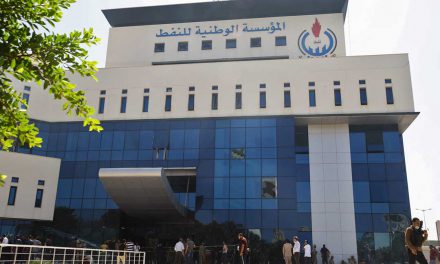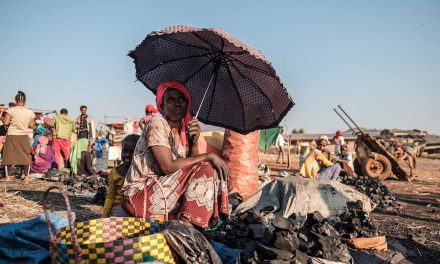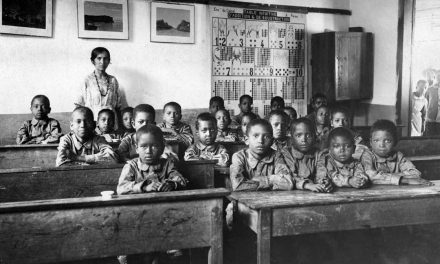Abuja Declaration: a bridge too far
Pressure from the coronavirus is exacerbating old weaknesses in healthcare delivery in public health institutions, leaving mental patients compromised
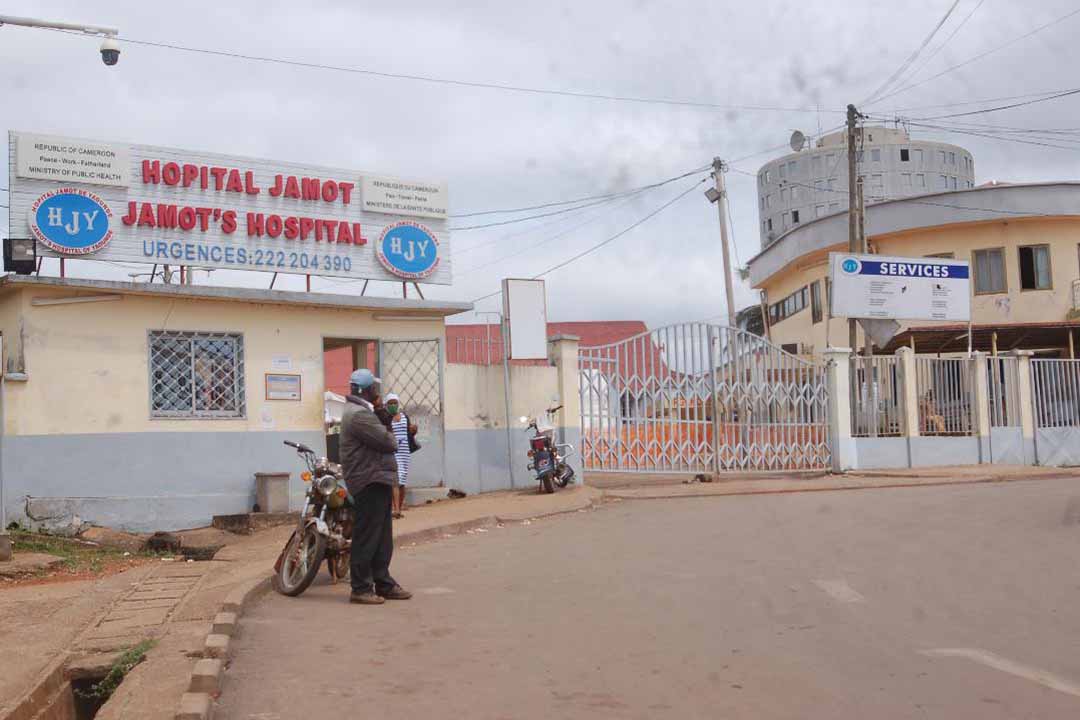
In 2001, African heads of state and government signed the Abuja Declaration, pledging to allocate at least 15% of their annual budgets to the improvement of their health systems. This historic commitment was undertaken to make available resources to respond to health challenges, especially HIV/AIDS, tuberculosis and other related infectious diseases. It was aimed at getting the continent’s health systems prepared for outbreaks such as the coronavirus. Some policy experts have found the Abuja Declaration wanting, and have instead pushed for a per capita model of funding. But even at that, close to two decades after the Abuja Declaration, nothing seems to have changed in many African countries; their health systems remain poor and fragile.
Cameroon is one of those countries which are yet to meet the funding target. A 2016 World Health Organization report titled ‘Public Financing for Health in Africa: from Abuja to the SDGs (sustainable development goals)’ shows that Cameroon’s health spending was 4% of the national budget, far below the continental average of 10%, in 2014. Cameroon’s health system had perennial cracks even before the outbreak of the coronavirus. It wasn’t tailored to handle a pandemic of such complexity and severity. Prior to the outbreak of COVID-19, the citizenry in Cameroon had difficulties in accessing healthcare services. Between 2016 and 2018, 27% of the population went without medical care many times, while a further 38% didn’t get medical care even once, according to Afrobarometer in 2020. Close to 50% of the population which had contact with a public health facility had difficulties obtaining the care they needed.
The study also shows that the country’s health system is characterised by long waits to obtain services, lack of nearby facilities and the payment of bribes. Cameroon doesn’t feature on the list of African countries that provide free and universal healthcare. Instead, the country’s public resources allocated to healthcare have continuously been among the lowest on the continent in terms of GDP. A World Bank study found that of the $61 per Cameroonian spent on healthcare in 2010, the government contributed only $17, that is, 28% – of which $8 was provided by international donors. By implication, Cameroonians largely pay for their own healthcare. The COVID-19 pandemic has greatly affected an already pressurised and weak healthcare sector, according to Dr Kibu Odette, senior health policy analyst at the Nkafu Policy Institute, an independent think tank at the Denis and Lenora Foretia Foundation.
Odette told Africa in Fact the country has far less than the number of physicians recommended by the World Health Organization (WHO), with just 1.1 doctors per 100,000 of the population. “It had less than 500 critical beds. Very few ventilators are available to take care of COVID-19 patients. These, among other factors, have greatly affected the way patients are managed. As such, curbing the pandemic has been a challenge to Cameroon,” Odette said. To flatten the curve of the contagion, the government has ramped up its efforts to mobilise resources for the response. Besides initiating a national solidarity fund and seeking debt relief, it has sought loans from the IMF, AfDB and other financing partners – all directed at COVID-19. In so doing, however, other health challenges in regular times such as mental disorders and HIV/ AIDS have been neglected by acts of either omission or commission.
Mental health is an issue in Cameroon, both unrelated to the pandemic and caused by Covid-19. According to WHO, neuropsychiatric disorders are estimated to contribute to 6.1% of the total disease burden in the country. Yet, Cameroon has no mental health policy in place and a simplified guide on the handling of mental cases was only introduced in 2017. Mental health is only mentioned in the general health policy. People who suffer from mental health problems in Cameroon are usually looked at with scorn. Mental health problems are not culturally acknowledged, and people are sceptical of scientific explanations. So, many do not regard it as an illness but some sort of curse, witchcraft, or sign of ill omen and that the patient should be avoided. At policy level, there are only two tertiary public hospitals in the country – Jamot Hospital Yaounde and Laquintinie Hospital Douala – that handle mental health problems.
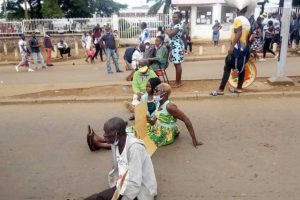
Kidney patients stage a protest outside the Yaounde University Teaching Hospital, Cameroon, August 2020 Photo: Amindah Blaise Atabong
But these facilities lack adequate qualified personnel and resources. A visit to Jamot Hospital in Yaounde on 18 August 2020 confirmed an existing reality – a gap in the provision of mental healthcare. Officials at the facility declined to comment. However, a caretaker of one of the patients, who gave her name as Mama Christabel, said things had turned upside down since the onset of the pandemic. “It has been a difficult moment for us with patients here. All attention has been shifted to COVID-19,” she said. Jean Pierre, a mental health patient, told Africa in Fact that with the COVID-19 situation, they have encountered problems while attempting to meet their respective doctors. “It is not easy at all. A few patients with whom I was following up treatment have died and I think it is because of fear. So much attention is on the pandemic and it makes it scary.” The government has not been keen to address mental health issues resulting from the pandemic.
It managed to put a mental health call line – 1511 – in place, but it has not been effective, according to Agbor Matelot, a Yaounde-based psycho-social counsellor. “The practice of counselling is not rooted in the culture of Cameroon,” he said. Matelot and other volunteers are running their own COVID-19 mental health call centre as the government response falters. “Through our We-Connect project, people have been able to reach us for assistance. We have handled hundreds of cases related to COVID-19 and the ongoing armed conflict in the Anglophone regions,” Matelot told Africa in Fact . In the past few months, Matelot has stepped up to fill the gap, offering individual and group counselling services in schools and organisations, amongst others.
COVID-19 disruption to essential health services has also been evident. Egbe Maggie-Lowells Ebot, a counsellor at the Presbyterian Hospital Kumba told Africa in Fact that some HIV/AIDS patients were cut off from essential antiretrovirals. “Restriction on movement has made it difficult for patients from remote areas to reach health facilities. And the government didn’t take this into account. Also, patients were scared of visiting health facilities, unsure of whether they will be forcefully tested and quarantined,” Ebot said. A government instruction to observe physical distancing during the pandemic also affected service delivery. Waiting times became even longer as health workers received one patient at a time. “Some got frustrated and left,” Ebot said. Moreover, from the onset of COVID-19, the government made the wearing of face masks in public mandatory. But at the time, face masks were scarce and unaffordable for many.
Those who couldn’t get a face mask were turned away from hospitals. As the government battles to contain the coronavirus, patients with kidney problems have accused it of indifference to their plight, claiming the “government is intentionally killing us”. On 14 August 2020, tens of kidney patients staged a public protest in the capital, Yaounde, in front of the Yaounde University Teaching Hospital. The leader of the patients, Apua Simon, told reporters that most of the dialysis machines had broken down and no efforts had been made to repair them, while dialysis kits were unavailable. “In the beginning, we had 12 machines that were functional and four years later, we are left with just three machines. Every passing day, patients keep on registering and we are over 100 patients now at CHU with just three machines,” he said.
With only three machines in good condition, running 24/7, Apua said they were often given appointments at odd hours like 2am and the cost per dialysis session remained high at FCFA 5,000 (about $9). All these lapses point to the fact that the government doesn’t see healthcare as a strategic priority. Also, as Odette points out, there is no holistic approach in the way government delivers healthcare. “WHO defines health as not just the absence of disease but looks at the overall wellbeing of an individual,” she said.
Amindeh Blaise Atabong is a Cameroonian freelance journalist. His interests include gender, human rights, climate change, environment, tech, conflict, peace-building and global development. In 2019, he was a finalist in the inaugural True Story Award, and also won a prestigious Kurt Schork Award in International Journalism. His works have been published by independent regional and international outlets, including Quartz, Mail & Guardian, Reuters, Jeune Afrique, Epoch Times, African Arguments and Equal Times.


